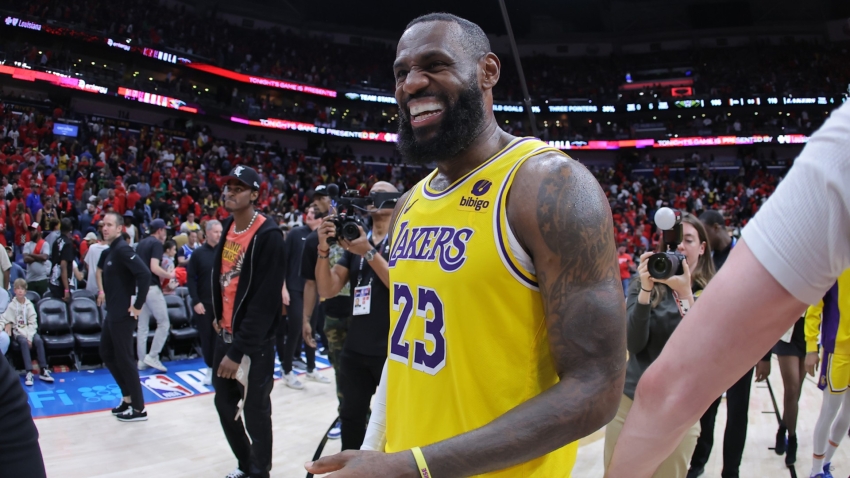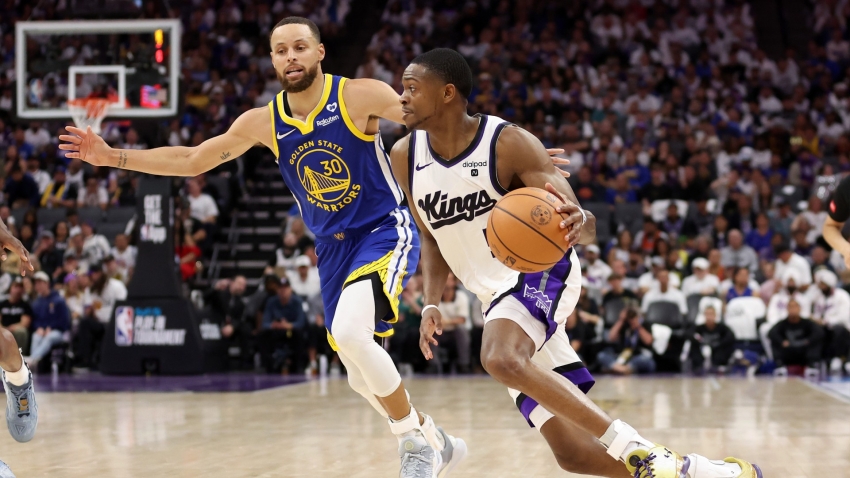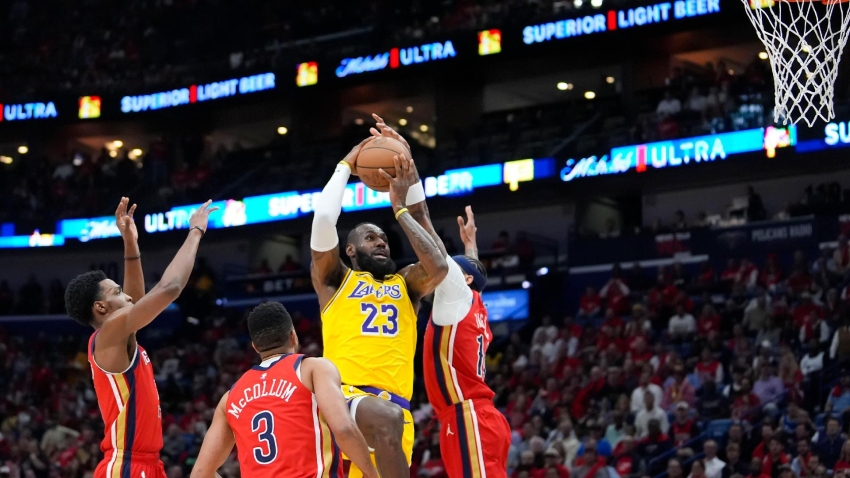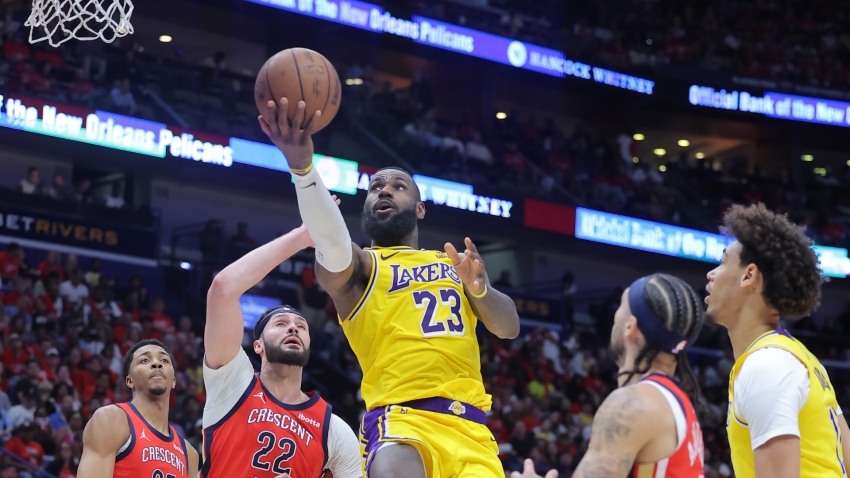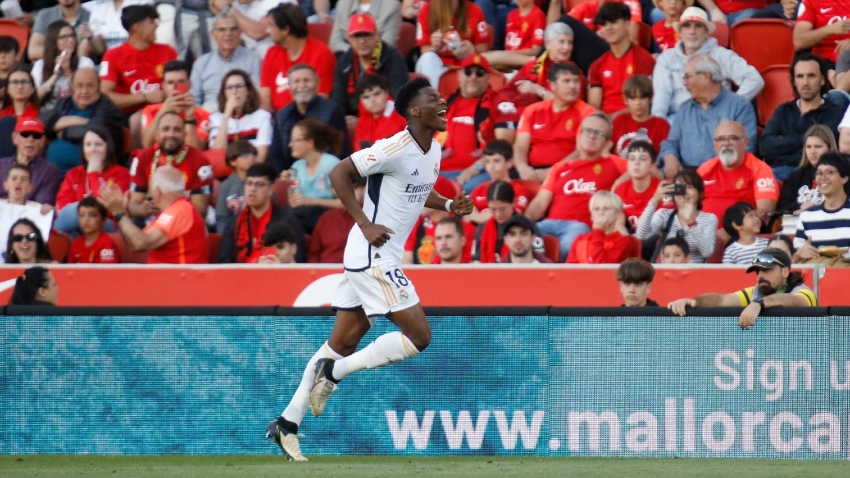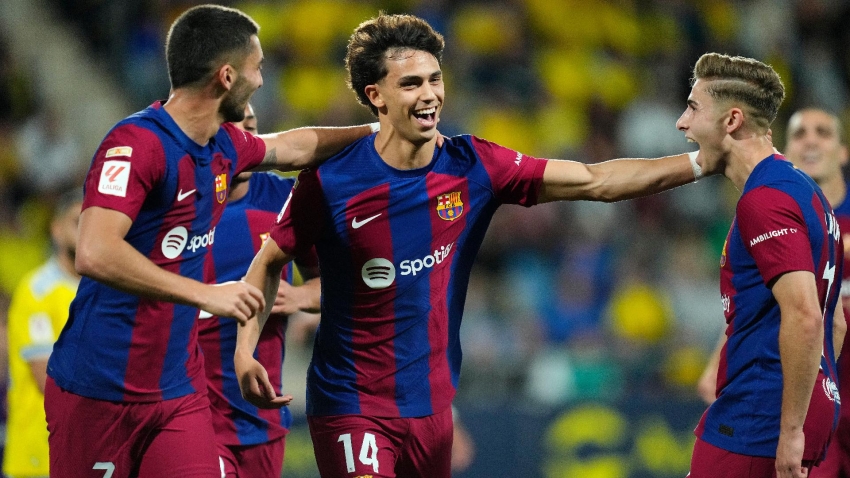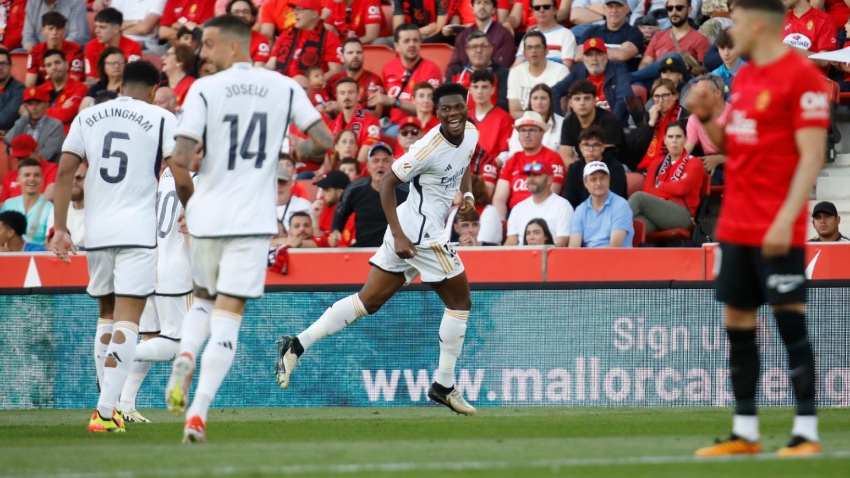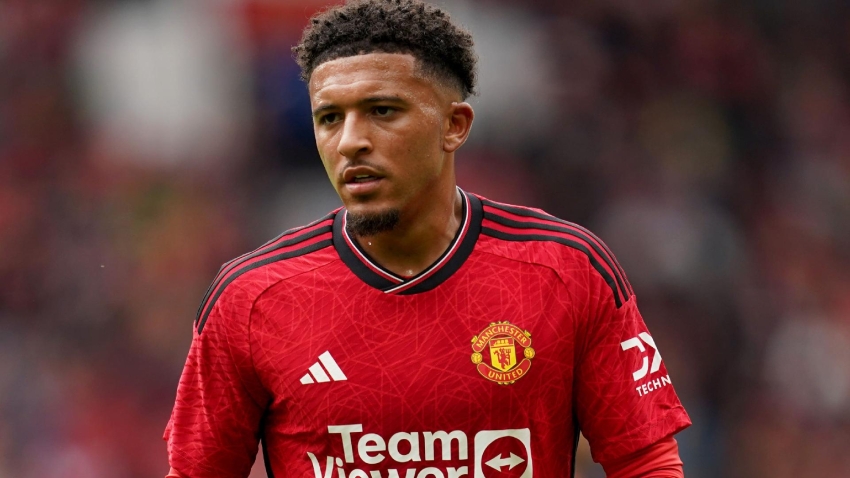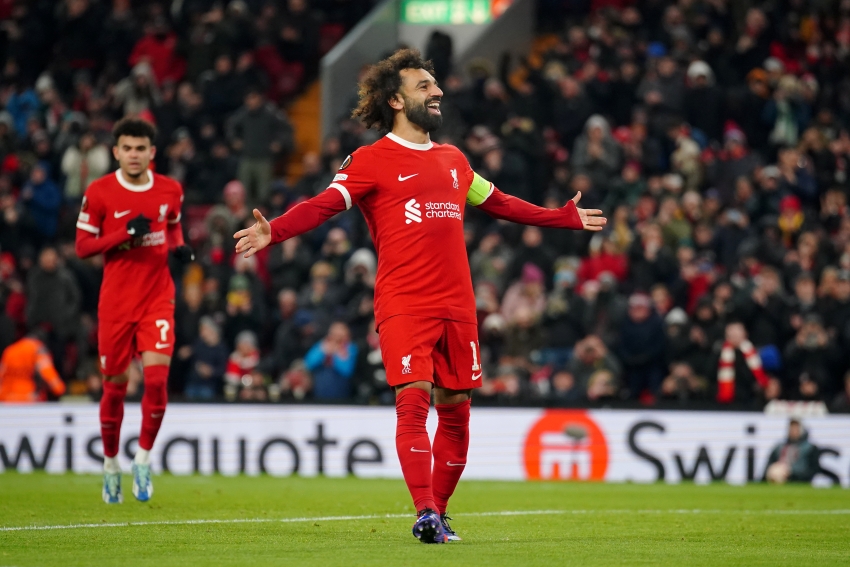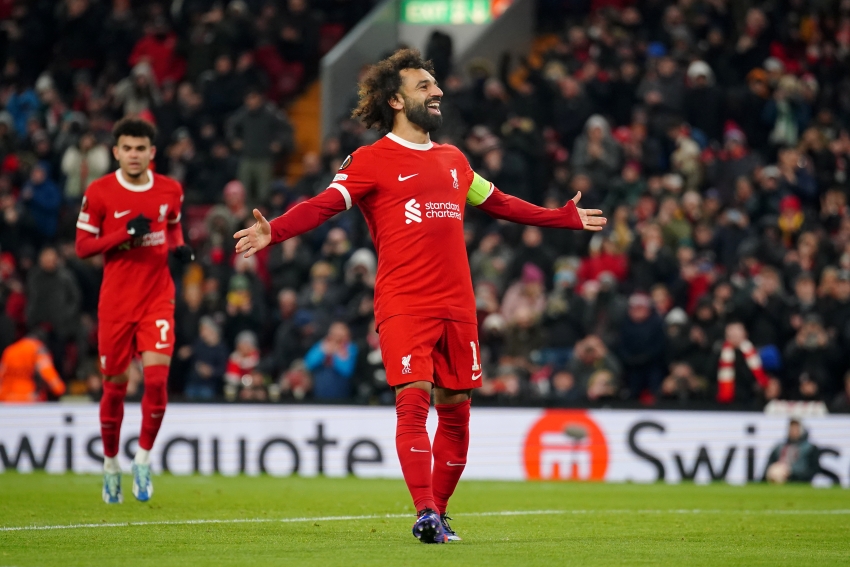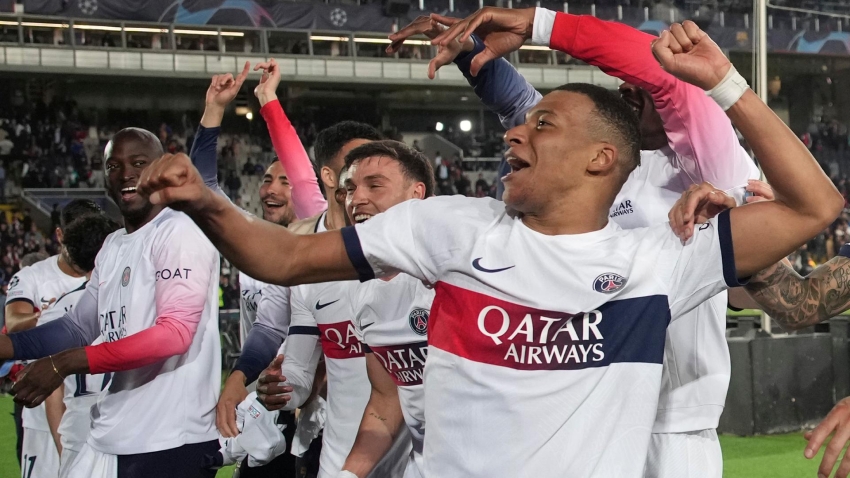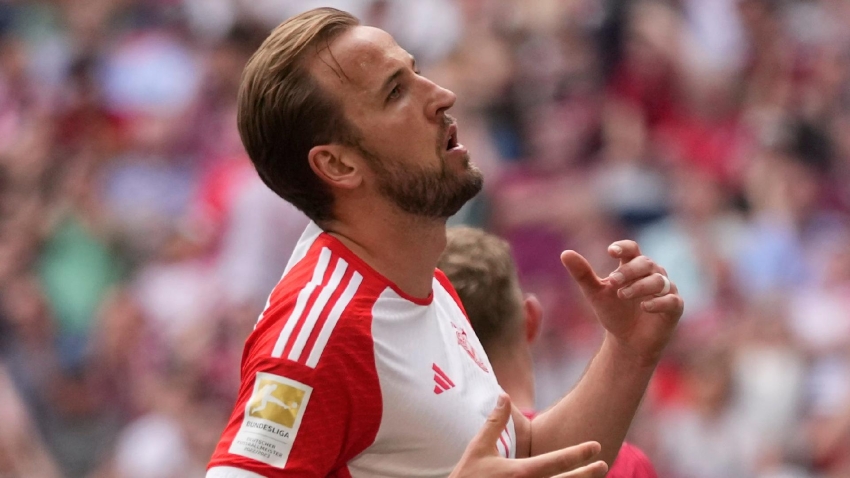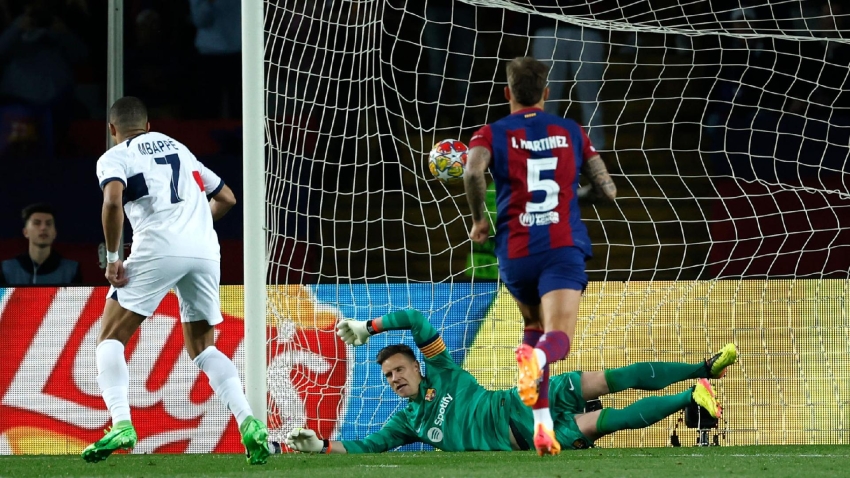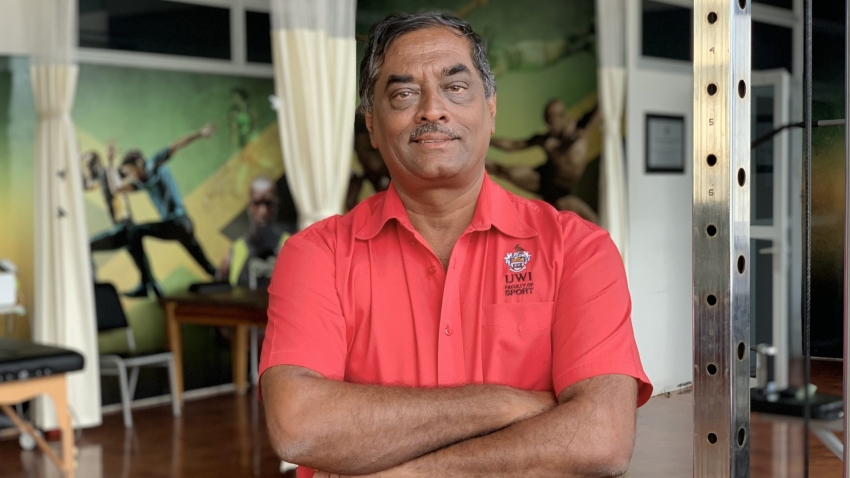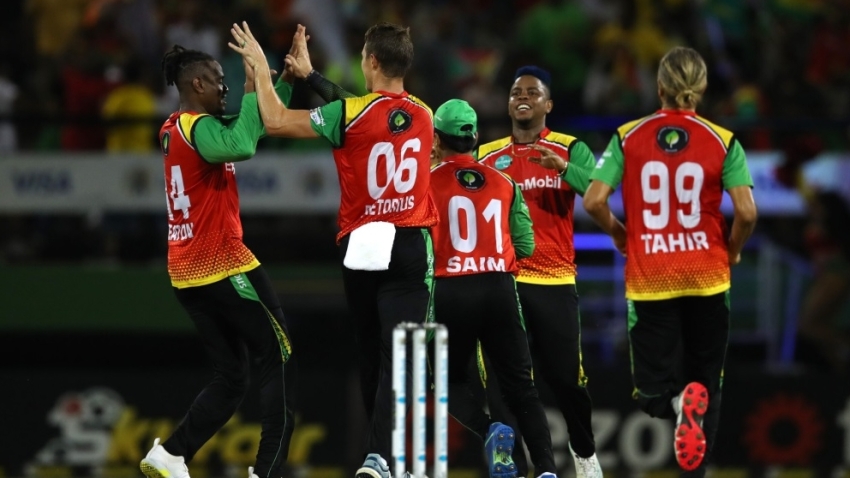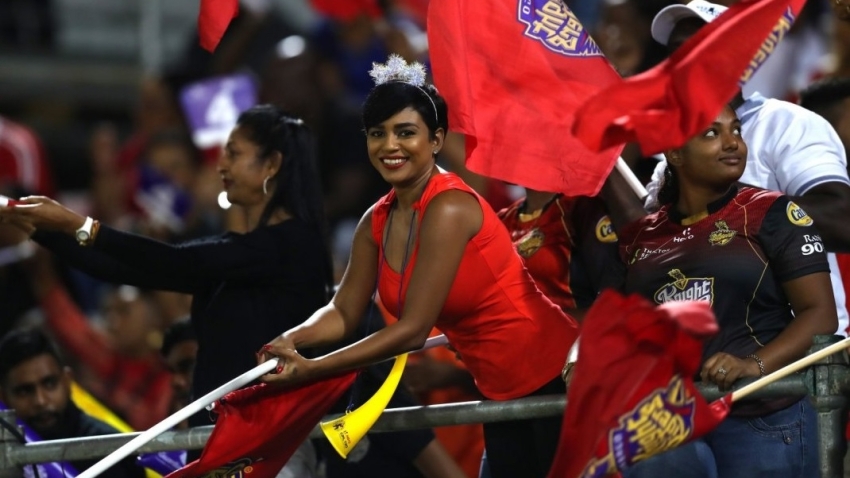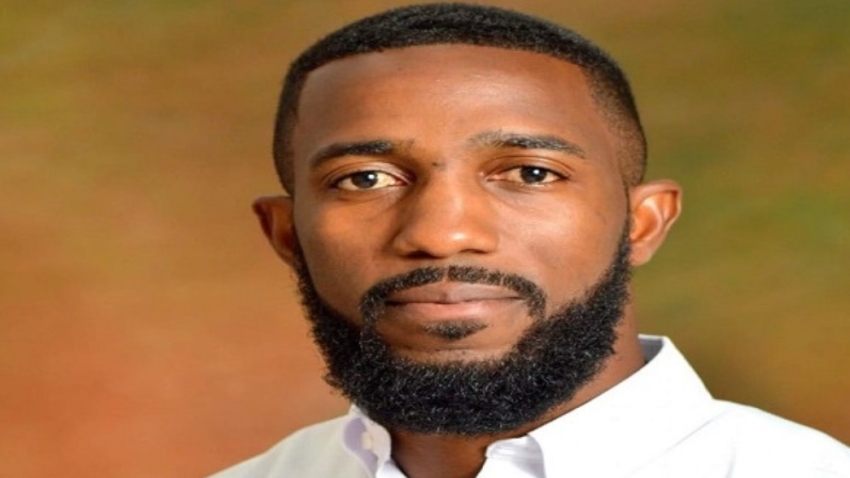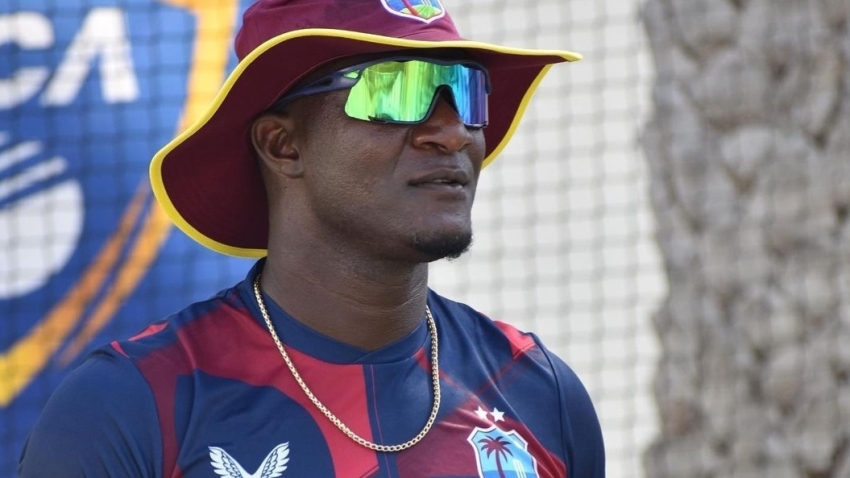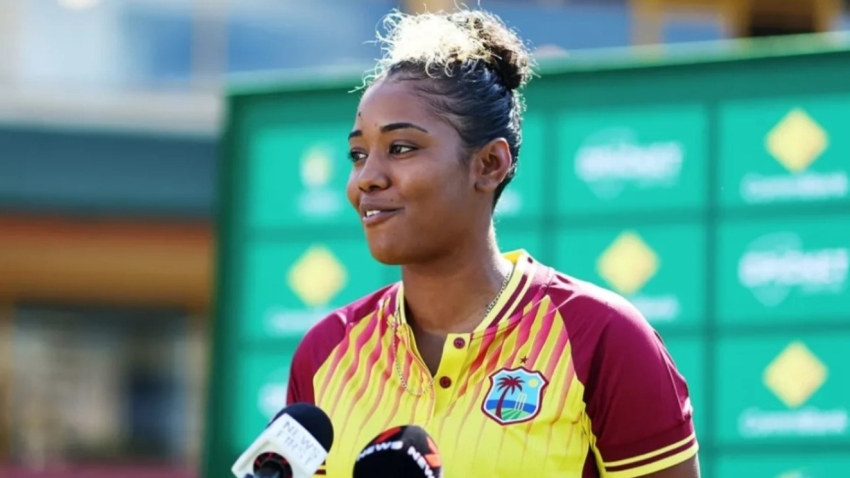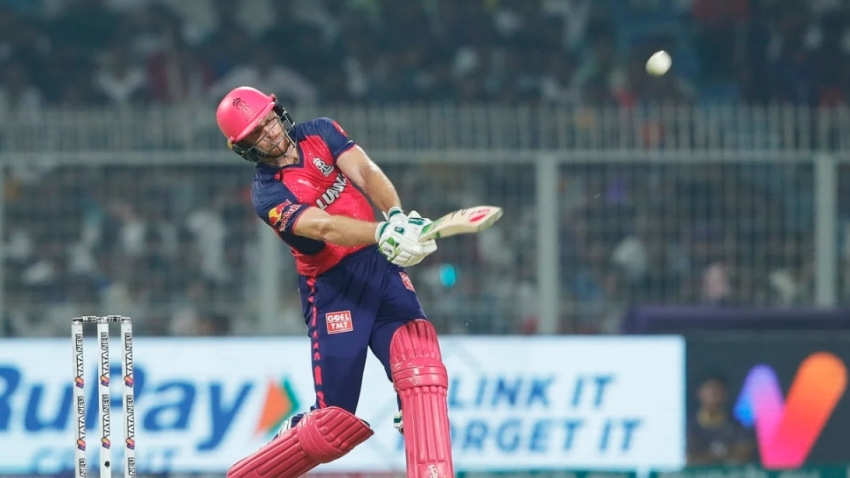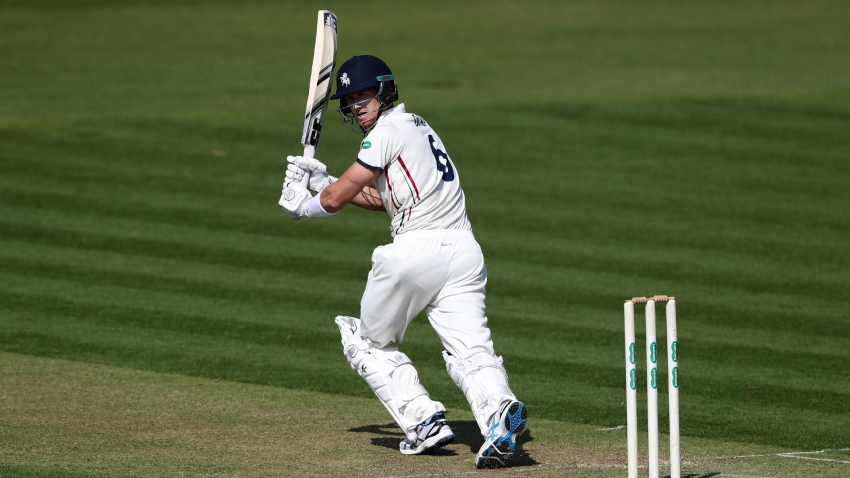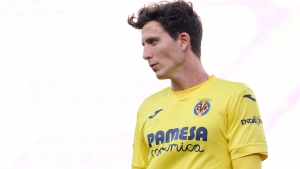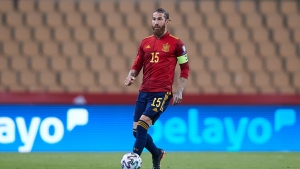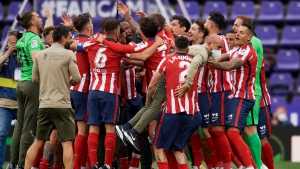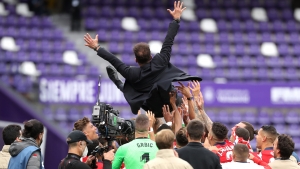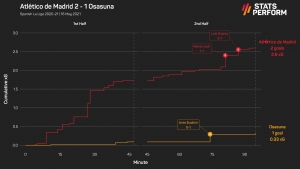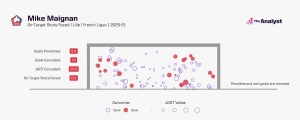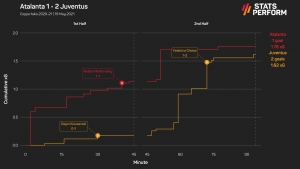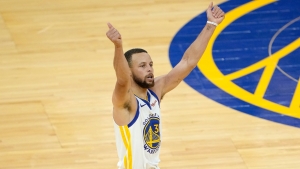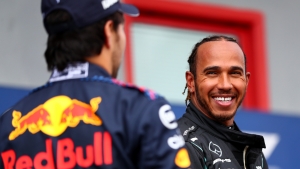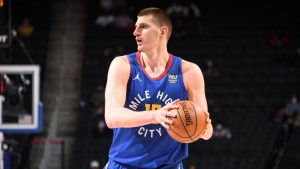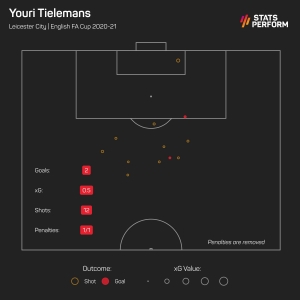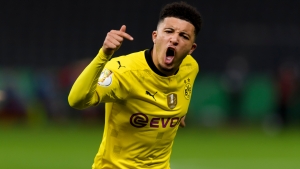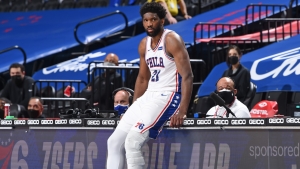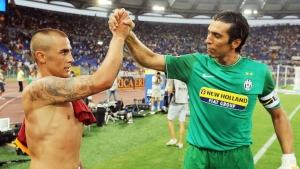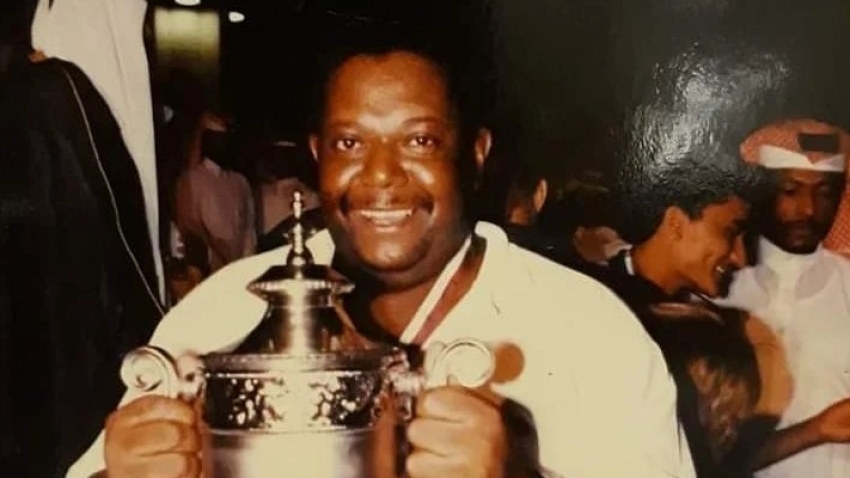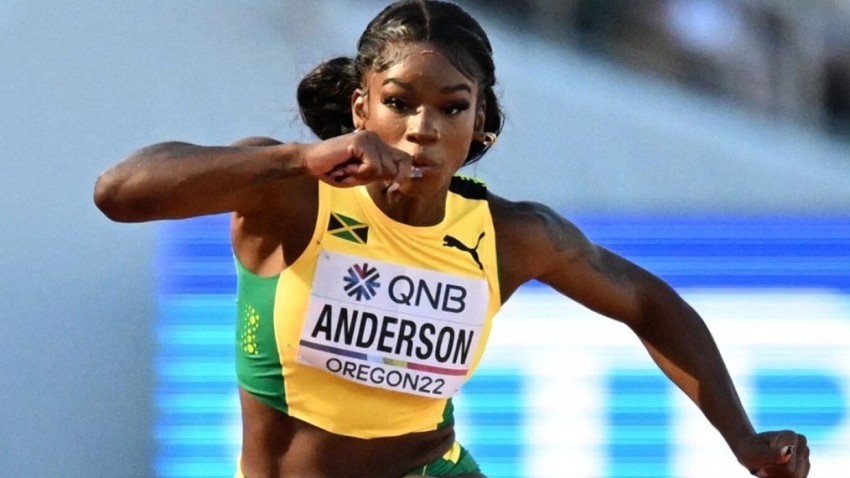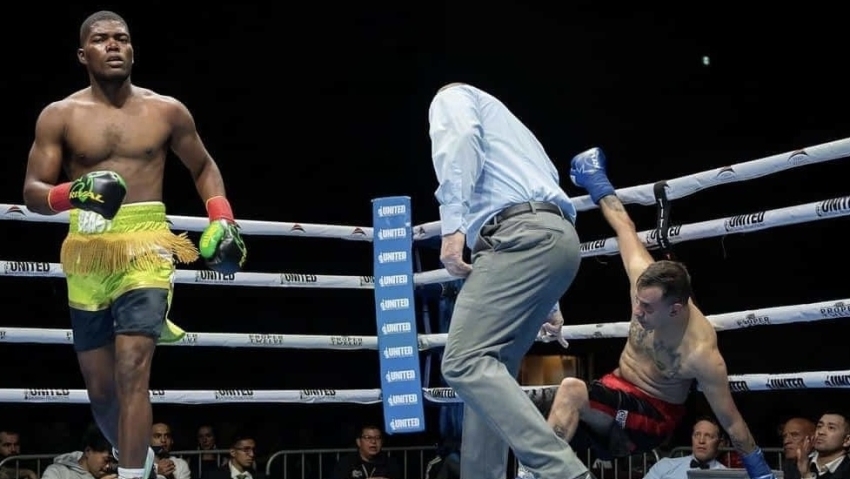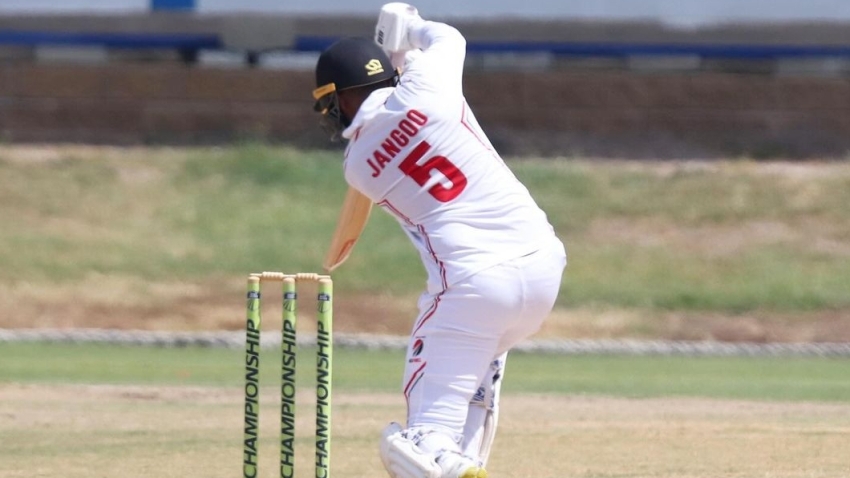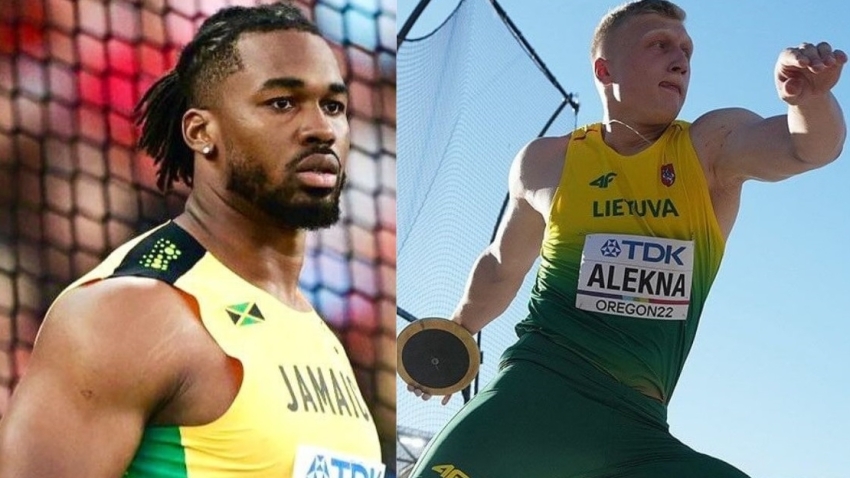Five years ago, Stephen Curry made history by being named the first unanimous MVP in NBA history.
With his phenomenal shooting range and deadly accuracy from beyond the arc, Curry fuelled the greatest NBA regular season ever as the Golden State Warriors went 73-9 in the 2015-16 campaign.
Curry joined the select group of players in the 50-40-90 club and became the first person to do so while averaging over 30 points a game.
It was a year that Curry seemed unlikely to ever top and certainly not in 2020-21, a season that followed a 2019-20 campaign essentially lost to a hand injury and one in which he did not have the benefit of playing with Kevin Durant or the injured Klay Thompson, with the core of the Warriors' dynasty that dominated the league largely gone.
Instead, this was supposed to be the year in which the rest of the NBA exacted a measure of revenge on Curry for torching them so devastatingly and so often.
Yet Curry, like all the greats, takes tremendous joy in subverting expectations, and he has done that to remarkable effect, surpassing his career-high average of 30.1 points per game from 2015-16 by racking up an incredible 32 per game to win the scoring title. The only other player to do so after turning 33 is Michael Jordan.
His consistently talismanic displays have pushed a Warriors team that would otherwise be watching the postseason from home into a mouth-watering play-in game with LeBron James and the Los Angeles Lakers. Even if the Warriors lose, they will have another chance to reach the first round with victory over the Memphis Grizzlies or San Antonio Spurs.
Despite his remarkable efforts in extending the Warriors' season, Curry will almost certainly not win the MVP award for the third time, with Denver Nuggets center Nikola Jokic an apparent lock to claim the honour.
But, after a year in which Curry shattered record after record, there is no doubt he is deserving of receiving the Maurice Podoloff Trophy once again.
A history-making year
Curry's scoring title, which he held off Bradley Beal of the Washington Wizards to claim, was the crowning achievement of a regular season that saw him write a host of new pages into an NBA record book in which he already dominates several chapters.
He set a league record with 5.3 three-pointers made per game in what was his third season averaging at least 5.0, no other player in NBA history has achieved that feat once.
Curry racked up seven games with 40 or more points and at least 10 threes in 2020-21, his status as the greatest shooter and one of the greatest scorers of all-time illustrated by the fact no other NBA player has more than three such games in their entire career.
Excluding rookies, he is the first player in NBA history to average 30 points per game having played fewer than 10 games in the previous season, with Curry breaking new ground at a time when many athletes begin to see signs of their bodies breaking down.
Indeed, Curry became the first player to have three 50-point games in a season at age 32 or older, while his points per game average was the highest in league history by a player of that age.
And, in a season where the late Kobe Bryant was enshrined in the Basketball Hall of Fame, it was only fitting that Curry emulated The Black Mamba. His performance in the January 3 against the Portland Trail Blazers, in which he exploded for 62 points, saw Curry join Bryant in becoming only the second player to score 18-plus points on three-pointers, two-pointers and free throws, Kobe doing so in his 81-point display on January 22, 2006.
As Bryant did so often during his career, Curry continues to find ways to set new boundaries for what is possible on an NBA court and, in 2020-21, he has done so while clearly elevating the play of a supporting cast well below the standard he has gotten used to in the Bay Area.
The impact of Curry's 'gravity'
To say that Curry makes the Warriors better is taking stating the obvious to the extreme, but not since the pre-Durant era has his influence been more readily apparent than a season in which he battled a tailbone injury and missed nine games over the course of the campaign.
The Warriors averaged 112.8 points per 100 possessions with Curry on the court compared to 101.9 when he was off the floor. Their field goal percentage improved from 44.1 per cent to 48.4 with Curry in action while their three-point success jumped from 36.1 to 38.3.
Golden State's effective field goal percentage was 57.1 per cent when Curry played, up from 51.6 when he was absent, and he also improved the Warriors' ability to facilitate.
Their assists per 100 possessions jumped from 24.4 without Curry to 27.6, with the difference in point differential painting a clear picture of his overall impact.
The Warriors' point differential per 100 possessions without Curry was minus 4.5. When he did play, it was plus 4.3.
In other words, in the regular season, Curry was worth 8.8 points per 100 possessions to the Warriors, who benefited from several players raising their games with him on the court.
Perhaps unsurprisingly, the player most positively affected by Curry's presence was Draymond Green. With Thompson suffering rotten injury luck, Curry and Green are the remaining pillars of the Warriors' original big three and their chemistry remains excellent.
This regular season, Green averaged 10.8 points, 10.2 rebounds, 13.2 assists and 2.5 steals per 100 possessions with Curry on the court. Without him, those numbers dipped to 5.5 points, 11.3 rebounds, 10.3 assists and 1.7 steals.
Andrew Wiggins averaged more points (30.4 to 23.6) per 100 possessions when Curry was out, a fact owing to the increased opportunities he gets when No. 30 is unavailable. However, Curry's presence made Wiggins a more efficient shooter.
Wiggins was good on 48.8 per cent of his attempts from the field with Curry compared to 45.9 without him. It was a similar tale with Kelly Oubre Jr, whom the Warriors hope to get back should they make it through the play-in tournament, as Oubre connected on 44.7 per cent of field goals when playing with Curry versus 42.4 the rest of the time.
That increased efficiency is likely a product of Curry's gravity - the extra attention he draws from defenders because of his threat from well beyond the three-point line that creates space for his team-mates.
Unfortunately, the biggest beneficiary of that gravity, center James Wiseman, won't be available in the postseason. A meniscus injury ended the second overall pick's season but the difference Curry made to his game was obvious.
Wiseman had 25.3 points per 100 possessions with Curry and 22.3 when he was missing. His field goal percentage (56.0 to 44.9) and three-point percentage (38.1 to 23.5) were also substantially better when Curry played.
The rookie experienced a similar jump in fast break points, which improved to 3.2 from 0.9 per 100, while he was significantly more effective near the rim with Curry commanding defenses' attention as Wiseman produced more points in the paint (17.9 to 13 per 100) and second-chance points (3.1 to 1.9.)
Curry has made a career out of making opposing big men look silly. Now, after seeing his evident influence on the Warriors' center curtailed, he will likely have to watch another of the game's giants take the top individual prize despite his own stupendous exploits.
Chef Curry vs. The Joker
Jokic has certainly done enough to merit being a frontrunner for MVP. The regular season saw him shoot 56.6 per cent from the field, 38.8 per cent from beyond the arc and 86.8 per cent from the free-throw line.
No player with at least 30 field goals in a season in NBA history can claim to have topped Jokic in all three of those measures.
Finishing the year with a minutes total of 2,488 that only New York Knicks duo Julius Randle and RJ Barrett topped, Jokic's points, assists and rebounds average of 45.5 per game was the joint-best mark in the NBA alongside Russell Westbrook.
Yet Curry was close behind in fifth with 43.2, with his success in making the disparity between him and Jokic relatively meagre an impressive feat given the advantage the seven-foot Serb has in terms of rebounding.
Curry played nine fewer games than Jokic and, while their minutes per game were comparable (Curry 34.2 and Jokic 34.6), there was a vast difference in points totals.
Jokic finished with 26.4 per game, well adrift of Curry's league-leading mark of 32, which was the most in a season in NBA history by a player averaging fewer than 35.0 minutes per game.
The edge in terms of all-round impact goes to Jokic, but Curry has arguably outstripped a season that ended with him taking every first-place MVP vote in a year where rust and a lack of weapons around him had led some to expect a year of comparative struggle.
This was a season in which Curry unexpectedly redefined what is possible and dragged the Warriors to the cusp of a first-round playoff berth. Jokic's role as chief architect for a Nuggets team much better placed to contend is worthy of the acclaim he has received but, after Curry's stunning show of endurance and consistency in producing the spectacular to keep the Warriors in the running, it should not be a one-horse race for MVP.


